Is the Kalam Cosmological Argument a Sound Proof for God?
by Brandon Vogt
Filed under The Existence of God
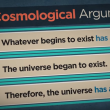
NOTE: A couple weeks ago, we kicked off a new series of posts where we'll introduce one of today's most popular arguments for or against God, and then invite open-ended discussion. The goal is not to offer a thorough defense or refutation of the argument in the original post, but to unpack it together, as a community, in the comment boxes. The first argument we discussed was Alvin Plantinga's modal ontological argument for God. Today, we'll look at the kalam cosmological argument. The... Read More
Does Quantum Physics Refute the Kalam Argument for God?
by Trent Horn
Filed under Science, The Existence of God
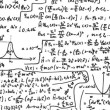
In a previous post I argued that a common atheist intuition about what would count as proof for the existence of God also provides a foundation for the intuition that something cannot come into existence from nothing without a natural cause. If this intuition is true, then it would provide much more support for the first premise of the Kalām Cosmological argument (KCA). For those who are unfamiliar with this argument for the existence of God, it goes like this: P1. Whatever begins to... Read More
Using the Kalaam Argument Correctly
by Jimmy Akin
Filed under The Existence of God

In recent years, one of the most popular arguments for the existence of God has been the Kalaam cosmological argument. Ultimately, I think this argument is successful, but many of the ways it has been employed are unsuccessful. It is an argument that needs to be used carefully—with the proper qualifiers. Stating the Argument We can state the Kalaam argument like this: 1) Everything that has a beginning has a cause.2) The universe has a beginning.3) Therefore,... Read More
Traversing an Infinite?
by Jimmy Akin
Filed under The Existence of God, Uncategorized
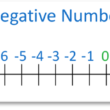
God created the universe a finite time ago, but there’s a question of whether we can prove this by reason alone. Defenders of the Kalaam cosmological argument often claim that the universe cannot have an infinite history because “traversing an infinite” is impossible. In his book Reasonable Faith (pp. 120-124), William Lane Craig puts the argument this way 1. The series of events in time is a collection formed by adding one member after another2.... Read More
The Top 5 Problems with Contemporary Christian Apologetics
by Dr. Randal Rauser
Filed under Man, Religion

I spend a lot of time criticizing contemporary Christian apologetics. Since I am myself a Christian apologist, that might seem a bit strange. But it is, in fact, simply a practical outworking of my commitment to what I call the 50/50 Rule: 50/50 rule: devote as much time to (a) defending the beliefs of your opponents and critiquing your own beliefs as you devote to (b) critiquing the beliefs of your opponents and defending your own beliefs.... Read More
How Cosmic Existence Reveals God’s Reality
by Dr. Dennis Bonnette
Filed under Christianity and Science, The Existence of God

Gottfried Wilhelm Leibniz (1646-1716) famously posed the ultimate question: “Why is there something rather than nothing?” To this, theoretical physicist Sean Carroll replies: “The universe can simply exist, end of story.” Still, as I have shown elsewhere, everything must have a reason for its being or coming-to-be, including the cosmos. This metaphysical first principle is ably defended by others as well.1 One distinction must be added: either a thing is its own reason or... Read More
Whatever is Moved is Moved By Another
by Dr. Dennis Bonnette
Filed under Philosophy
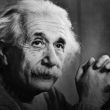
“Motion is the act of a being in potency insofar as it is in potency.” - Aristotle, Physics Book III, 201a10-11 In his famous First Way of proving God’s existence, St. Thomas Aquinas says, “It is certain, and evident to our senses, that in the world some things are in motion.”1 But, are things really in motion? Most people would think that motion in the world is too obvious to doubt. Yet, some, based on theories of modern physics, claim that physical change in the universe is... Read More
Why Does the Universe Exist? Atheist Physicist Sean Carroll Answers…
by Brandon Vogt
Filed under Christianity and Science, Cosmology

I have to admit, when I first opened Sean Carroll's new book, The Big Picture: On the Origins of Life, Meaning, and the Universe Itself (Dutton, 2016) I immediately flipped to chapter 25, titled "Why Does the Universe Exist?" For many thinkers, ancient and modern, this is the philosophical question: why is there something rather than nothing? Your answer to this question drives your answers to most other big questions, including those about God, meaning, morality, and more. So I was... Read More
Answering Stephen Colbert’s Favorite Atheist Physicist
by Trent Horn
Filed under Atheism, Christianity and Science, Cosmology

In a book that was released a few days ago, Sean Carroll, theoretical physicist, critic of religion, and former guest of The Colbert Report, presents what he calls The Big Picture. Neil deGrasse Tyson says the book “weav[es] the threads of astronomy, physics, chemistry, biology, and philosophy into a seamless narrative tapestry. Sean Carroll enthralls us with what we’ve figured out in the universe and humbles us with what we don’t yet understand. Yet in the end, it’s the meaning... Read More
How to Prove that God Doesn’t Exist
by Matt Nelson
Filed under The Existence of God
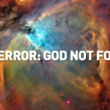
There are a couple things I can appreciate about the “Who designed the Designer?” argument. Although it is rooted in a caricature of the kalam cosmological argument’s first premise ("Whatever begins to exist has a cause"), it is a positive argument for atheism, and it does attempt to deal with the God hypothesis in the only arena where God’s existence may be decisively confirmed or refuted: the arena of philosophy. The God defended by Christian theists is a transcendent,... Read More






